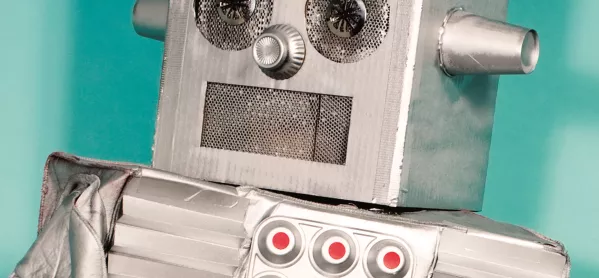The workplace is changing at such a rapid pace that it is difficult to make predictions about what tomorrow might bring. Many of the jobs that are commonplace today in digital marketing or app design, for example, did not exist 10 years ago.
When today’s students enter the workforce, there will in all probability be a whole host of new roles to aspire to. Self-drive car mechanic or drone engineer anyone?
It falls to the FE sector to provide the core of the nation’s workforce of the future. And I would hazard a guess that these workers will need to be natural collaborators, problem-solvers and out-of-the-box thinkers.
Yet, if the institutions we work in are designed around traditional models of teaching and learning, how can we develop our learners so that they can take advantage of the new employment landscape?
No place for chalk and talk
We need to move away from classrooms that have not progressed since the days of chalk and talk - with a desk at the front, where teaching remains in the hands of teachers and students are passive recipients of information, rather than active learners.
Similarly, subject faculties are often entirely separate entities, dividing the chefs from the software developers, so never the twain shall meet.
This traditional scenario simply doesn’t represent the workplace that our students will enter - the old-style office is just as last century as the classroom. In the future, chefs will probably need to work hand-in-hand with software developers to create apps to promote their restaurant or hire a social media expert to help them develop their advertising strategy.
A different type of teaching
To get students ready to compete in the global market and thrive in the sharing economy, we need to move towards self-directed learning. So where does this leave teachers?
Many teaching staff in our college have been with us for 15 years or more; they have a wealth of experience and vast pools of knowledge. However, their role is changing. They are becoming expert facilitators of learning and they continue to encourage their students to take more control.
We are currently at a crossroads in our college. We are transforming it from the bottom up to ensure that we are developing learners ready for the future. But it would be difficult to expect this level of change without the whole system, staff training and buildings being transformed.
This is an edited version of a story in the 21 October issue of TES. Subscribers can read the full version here.
FE SPECIAL OFFER: click here to try out a TES Further Education subscription for just £1 for 4 weeks.
Want to keep up with the latest education news and opinion? Follow TES FE News on Twitter, like us on Facebook and follow us on LinkedIn


